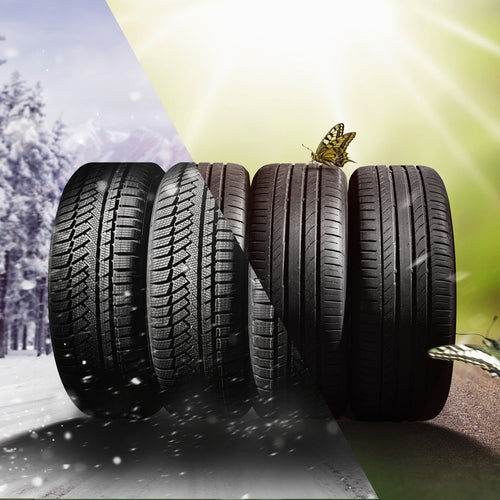With the change of seasons, the question of the right tires arises for many drivers. Summer tires are in demand in summer, while winter tires are required in winter. But what exactly distinguishes the two types of tires from each other and what should you pay attention to when choosing tires?
summer tyres
Summer tires are designed for temperatures from around 7°C and perform best in warm weather conditions. They have a harder rubber compound than winter tires, which means they wear out less quickly in high temperatures. In addition, they are equipped with a profile that ensures good grip on the road in dry and wet conditions. Even at high speeds and with a sporty driving style, summer tires offer good stability.
winter tyres
Winter tires, on the other hand, are designed for temperatures below 7°C and offer the best performance in wintry conditions. They have a softer rubber compound than summer tires, which allows them to remain more flexible and grip better in low temperatures. They are also equipped with a profile that ensures good traction in snow, ice and mud. Winter tires also offer better safety than summer tires in the event of aquaplaning.
What should you consider when choosing tires?
Basically, you should always use the right tires for the respective season to ensure maximum safety. Even if winter tires are not legally compulsory in all countries, experts still recommend the use of winter tires in wintry conditions.
When buying summer tires, you should make sure that they have the appropriate marking (e.g. "M+S") and that they meet the legal requirements. They should also be checked regularly for damage and wear.
When buying winter tires you should make sure that they are marked with the "snowflake symbol" and that they meet the legal requirements. In addition, they should have a tread depth of at least 4 mm and be checked regularly for damage and wear.
Conclusion
Summer and winter tires differ in terms of their rubber compound and tread design. While summer tires perform well in warm conditions, winter tires are essential in wintry conditions. When buying tires, you should always pay attention to the appropriate labeling and observe the legal requirements. In addition, the tires should be checked regularly for damage and wear to ensure maximum safety on the road.

